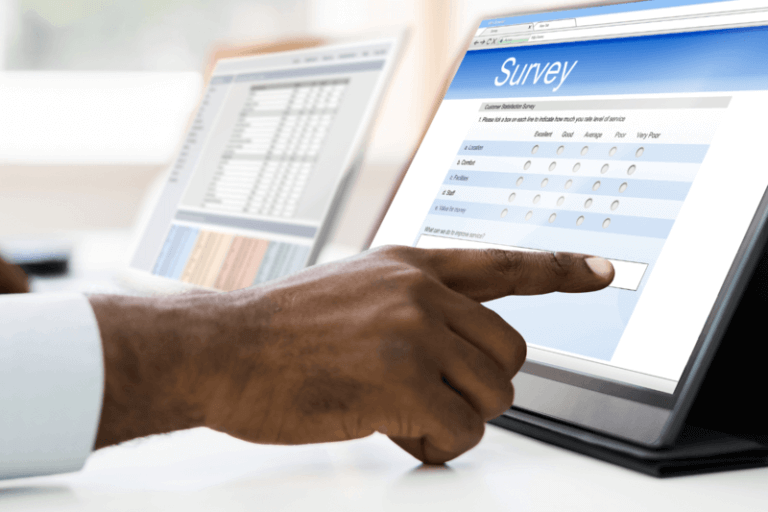Its modular design and characteristics of greater security, accessibility and order in data storage, constitute a valuable advantage in terms of responding with greater agility and speed to market requirements.
The need to quickly adapt to the constant changes of a dynamic and competitive market requires companies to be able to collect, manage and analyze more efficiently a huge volume of vital information, in order to successfully achieve their strategic objectives.
Moreover, in a scenario that is increasingly saturated with actors who strive to achieve the best position, it is essential to have a business management system that provides solid competitive advantages, regardless of the size or target audience of the company. And it’s not just about changing simple productive tools, but about fulfilling a basic condition for survival.
The key lies, then, in implementing specialized management software that helps companies to optimize the performance of organizational resources and reduce costs. Goals that today position ERP systems as the precise tool to accomplish this task.
Characteristics and functionality of an ERP
An Enterprise Resource Planning software or ERP, is a set of integrated applications, which allow companies to automate most of the business practices related to their operational or productive aspects.
In other words, they facilitate and centralize information from all the areas that make up an organization, including, for example, human resources, marketing, services, production, purchasing, logistics, accounting, finance, projects and customer service, among others.
This feature is directly based on the modularity and scalability of ERP software. In other words, they offer the possibility of implementing all the functionalities that a company needs, without making large additional investments, or putting its development and future growth at risk.
According to this objective its architecture has been specially planned and designed so that all system components freely interact with each other. This consolidates any operation carried out through the platform, and centralizes the information generated in a single unique database.
The great functional advantage of ERPs lies in the fact that they can organize all the data in various modules (which can change or be extended according to the characteristics and specific development of each company). These modules can include, for example:
- Stock management
- Commercial and sales control and management
- Logistics operations
- Financial management
- Integration with the issuance of electronic tax documents
- Sales management
- People management
- Reports
Such a design allows all this information to be centralized in a point that can be accessed by all areas of the company. This facilitates the management and analysis of Data, avoiding duplication and facilitating the flow of critical information for the development of the core business.
This characteristic is very important, because although companies are divided into different departments, they all depend on each other. Therefore, it is necessary for them to act jointly in order to successfully achieve common objectives.
In this way, the more synchronized and aligned the departments are, the more efficient they will be in executing their respective tasks and contributing to the general productivity of the company.
In any case, to successfully implement an ERP, we require a prior consultancy in order to analyze the existing business model, as well as the strategy and processes that govern the flow information generated between the different departments. Only in this way we can apply a productive and successful management change.
Main advantages of an ERP
This set of functionalities provides a wide range of benefits to companies. Among these may be mentioned the following
- Optimizes management processes
The coherence, homogeneity of data and interaction that is achieved between the different areas of the company, thanks to the use of a single tool, improves the overall performance.
- Improves decision making
The centralization of information increases its quality and makes it available in real time, which speeds up and improves executive response times.
- Increase data security
Maintenance, backup, and protection are made easy and simple, because all critical business information is in a single container (or database).
- Provides modularity and scalability
A good ERP solution covers the needs of the moment, and also has additional modules that can be deployed or incorporated at any time.
- Adapts to real needs
This software is configured according to the characteristics of each company, although during this phase the main processes of the core business must be analyzed in depth.
- Offers greater control and traceability
ERPs record all daily interactions, including area data and/or every user logged, which allows exhaustive monitoring or auditing of each piece of data, process or document.
- Increase automation
Periodic or repetitive tasks (such as reports, follow-ups or claims) can be automated to optimize the use of resources and focus them on the most productive actions.
All these advantages reinforce the idea that an ERP software does not seek to change the way of working, but rather provides faster and more efficient responses in the shortest possible time. A fundamental advantage to consolidate a successful position in an increasingly agile, dynamic and demanding market.
Main ERP present in the market
The use of an ERP software represents much more than the implementation of a technological tool. It implies entering properly into a new era of agility and cultural transformation, which allows better drawing up strategic planning and, likewise, anticipating contingency scenarios.
These advantages will facilitate long-term planning, as well as the company’s ability to design and implement problem and conflict resolution strategies. In addition, it will help strengthen those departments that are weakest in their performance, and will provide better opportunities for joint success.
Currently, the computer market offers various options for ERP programs, which can be adapted more or less easily to the characteristics of each company. Some of the existing alternatives are the following:
SAP
This software uses a secure information system, with constant updates, and whose objective is to speed up the resolution of problems in the processes of purchases, services, production, finances, sales and human resources. Integrate SAP with DataScope here.
Oracle
This US firm markets an ERP that manages everything from accounting to reporting. It also offers the option of working in a hybrid system installed in its own cloud. This software uses a secure information system, with constant updates, and whose objective is to speed up the resolution of problems in the processes of purchases, services, production, finances, sales and human resources. Integrate Oracle with DataScope here.
TOTVS
This Brazilian multinational offers ERP services to different companies. Its main features include financial and fiscal control, supervision of administrative activities, and analysis and estimation of the Return on Investment (ROI).
Tiny ERP
This system is aimed at virtual stores and small businesses. Its objective is to increase the efficiency of internal processes, offering access to relevant metrics and automated graphs.
Blue account
It is an ERP software of high prominence in the Brazilian market. It allows its integration with other platforms such as CRMG, as well as payments and marketing automation.
SIGE Cloud ERP
It is one of the most complete ERPs on the market, since it has different models and useful plans for any type of company or business.
Microsoft Dynamics
This system works directly in the Microsoft cloud. Its great difference lies in the fact that it has an integrated CRM and can also be fully coupled with the products of the Office suite.
These systems can also be integrated with the different management and inspection solutions that DataScope offers on the market today, which provides greater functionality to operations and allows more opportunities to successfully guide the performance of the various departments of the company.







